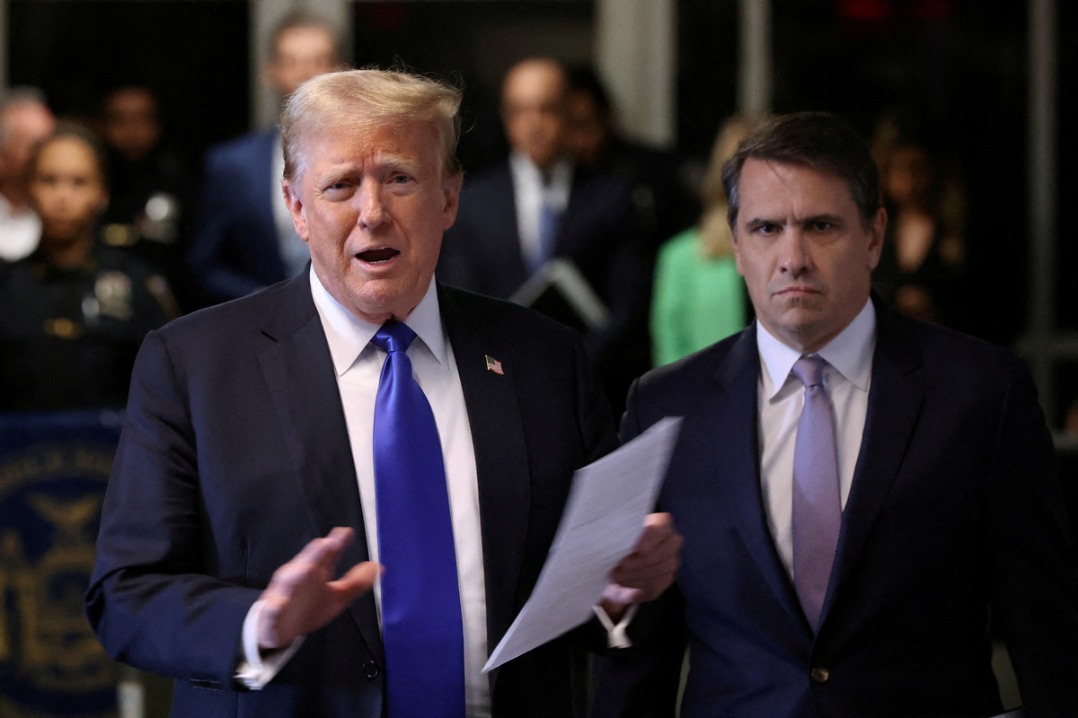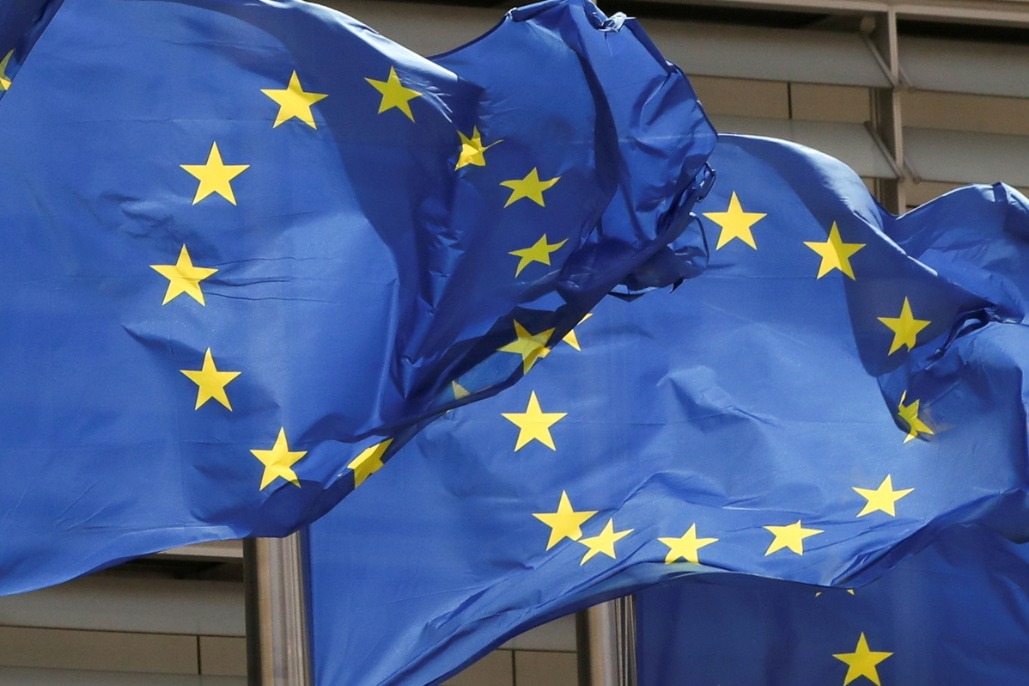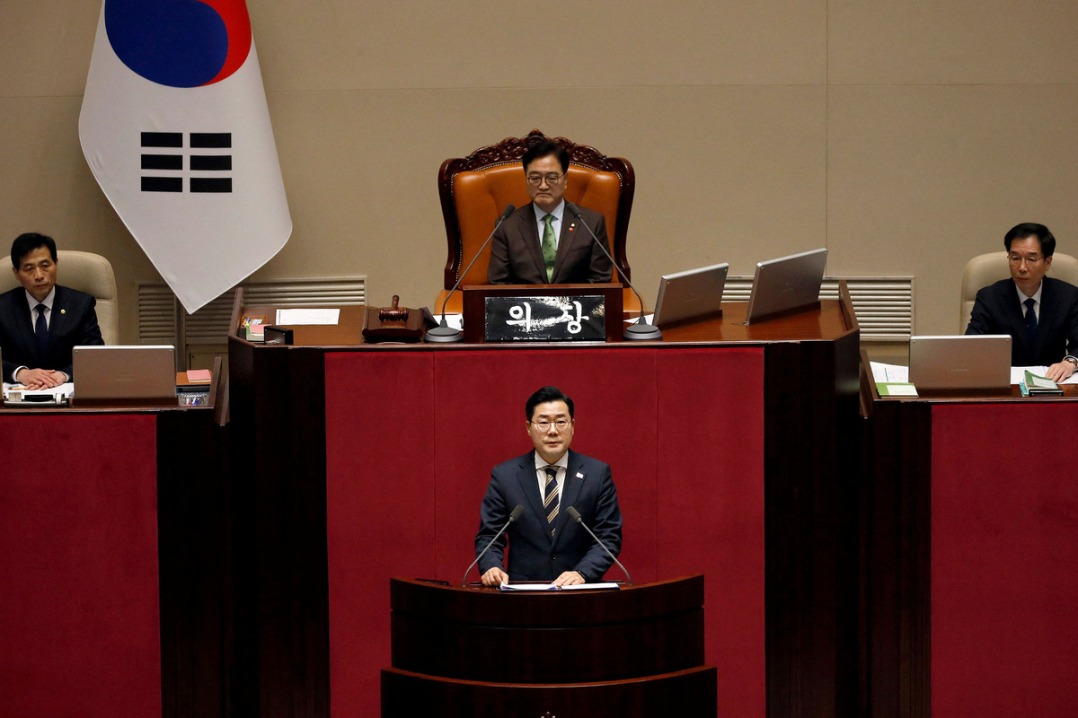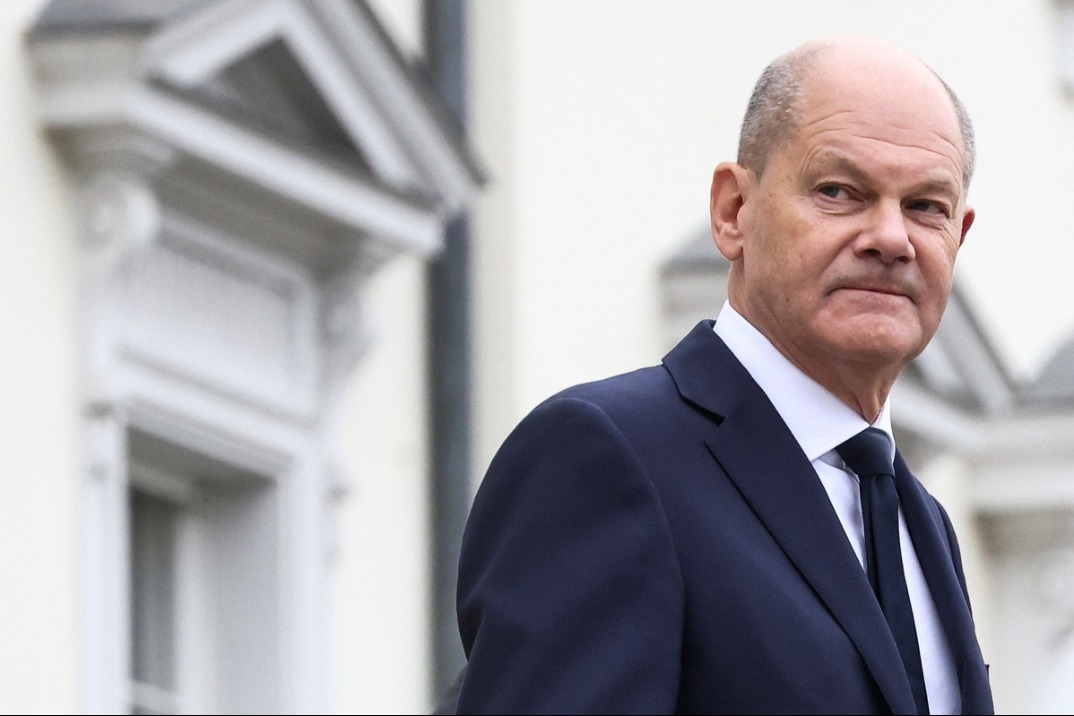Germany's conservative opposition launches election manifesto

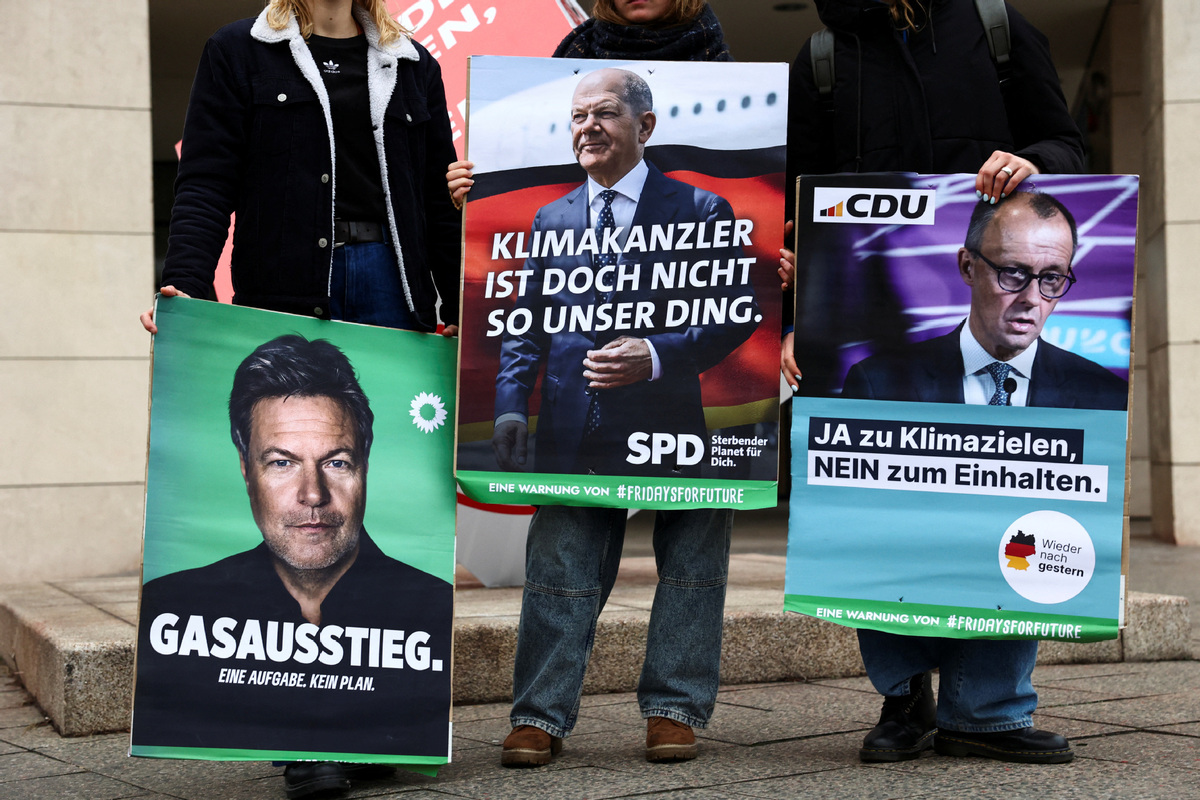
Germany's conservative opposition alliance launched its campaign for the country's Feb 23 snap election on Tuesday, unveiling plans for sweeping tax cuts and stricter immigration controls.
The Christian Democratic Union, or CDU, and its sister party, the Christian Social Union, or CSU, presented their joint manifesto at a news conference after parliament formally ended Chancellor Olaf Scholz's coalition through a vote of no-confidence on Monday.
CDU leader Friedrich Merz, the alliance's candidate for chancellor, claimed that the chancellor had "lost the confidence of a majority of the population a long time ago".
The conservative manifesto promises "new policies … that will ensure Germany moves forward. And our promise is: we will make sure that happens".
The parties are vowing to "stop illegal migration", strictly control Germany's borders, and scale down benefits for rejected asylum seekers to a "bed, bread, and soap" minimum, reported AFP.
The conservatives want to cut unemployment benefits and said they aim to make "hard work worth it again".
CSU leader Markus Soeder summed up the parties' position as middle-class, social, and conservative and "definitely not left-wing and not woke and not gendered".
Scholz's center-left Social Democrats, or SPD, and the neoliberal Free Democratic Party, or FDP, were also due to unveil their election platforms on Tuesday, outlining their competing visions for the country's future.
Scholz's three-party coalition collapsed last month when the pro-market FDP withdrew over a debt dispute, leaving his SPD and the Greens without a parliamentary majority amid Germany's deepening economic crisis.
During the pre-vote debate in parliament on Monday, Scholz and Merz accused each other of incompetence and a lack of vision, reported Reuters.
Scholz, who will lead as caretaker chancellor until a new government is formed, defended his leadership through multiple crises and pledged to prioritize infrastructure investment if given a second term, in contrast to what he described as the conservatives' austerity agenda.
"Shortsightedness might save money in the short term, but the mortgage on our future is unaffordable," warned Scholz, who was finance minister in a coalition government with the conservatives before taking the chancellorship in 2021.
Merz attacked Scholz's spending plans, warning they would saddle future generations with debt.
"Taking on debt at the cost of the young generation, spending money – and you didn't say the word 'competitiveness' once," said Merz.
Opinion polls show the conservative alliance with a 10-point advantage over Scholz's SPD, although the gap has begun to shrink, reported Deutsche Welle.
The far-right Alternative for Germany, or AfD, is also slightly ahead of the SPD, with the Greens in fourth.
With established parties ruling out working with the AfD, the party's strong polling position could force the formation of more complex governing coalitions, reported Reuters.
Green Party chancellor candidate Robert Habeck expressed concern for Germany's democratic stability, pointing to the increasing probability of ideologically diverse coalitions.
"It's very unlikely the next government will have it easier," Habeck said.
















